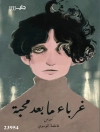This five-volume work consists in biographies of the most important writers and thinkers of their time, since 14th until 19th century. Most of them were written by the Romantic writer Mary Shelley. Her extensive knowledge of history and languages, her ability to tell a gripping biographical narrative, and her interest in the burgeoning field of feminist historiography are reflected in these works. She wrote in a style that combined secondary sources, memoir, anecdote, and her own opinions. Her political views are most obvious in the Italian Lives, where she supports the Italian independence movement and promotes republicanism; in the French Lives she portrays women sympathetically, explaining their political and social restrictions and arguing that women can be productive members of society if given the proper educational and social opportunities.
Contents:
Vol. 1: Lives of the most eminent literary and scientific men of France (Part. I):
Montaigne
Rabelais
Corneille
Rochefoucauld
Molière
La Fontaine
Pascal
Madame de Sévigné
Boileau
Racine
Fénélon
Vol. 2: Lives of the most eminent literary and scientific men of France (Part. II):
Voltaire
Rousseau
Condorcet
Mirabeau
Madame Roland
Madame de Staël.
Vol. 3: Lives of the Most Eminent Literary and Scientific Men of Italy, Spain and Portugal (Part. I):
Dante
Petrarch
Boccaccio
Lorenzo de’ Medici, &c.
Bojardo
Berni
Ariosto
Machiavelli
Vol. 4: Lives of the Most Eminent Literary and Scientific Men of Italy, Spain and Portugal (Part. II):
Galileo
Guicciardini
Vittoria Colonna
Guarini
Tasso
Chiabrera
Tassoni
Marini
Filicaja
Metastasio
Goldoni
Alfieri
Monti
Ugo Foscolo
Vol. 5: Lives of the Most Eminent Literary and Scientific Men of Italy, Spain and Portugal (Part. III):
Boscan
Garcilaso de la Vega
Diego Hurtado de Mendoza
Luis de Leon
Herrera
Saa de Miranda
Jorge de Montemayor
Castillejo
The early dramatists
Ercilla
Cervantes
Lope de Vega
Vicente Espinel; Esteban de Villegas
Gongora
Quevedo
Calderon
Early poets of Portugal
Camoens
Sobre el autor
Mary Wollstonecraft Shelley (1797-1851) was an English novelist, short story writer, dramatist, essayist, biographer, and travel writer, best known for her Gothic novel Frankenstein: or, The Modern Prometheus. She also edited and promoted the works of her husband, the Romantic poet and philosopher Percy Bysshe Shelley. Mary Shelley’s works often argue that cooperation and sympathy, particularly as practiced by women in the family, were the ways to reform civil society. This view was a direct challenge to the individualistic Romantic ethos promoted by Percy Shelley and Enlightenment political theories.












